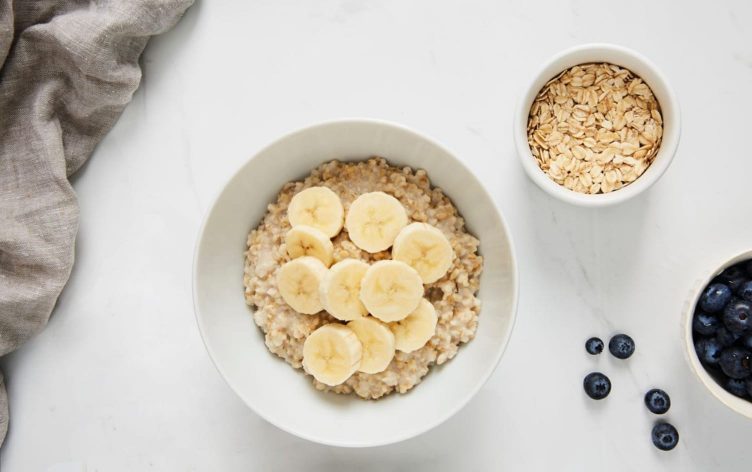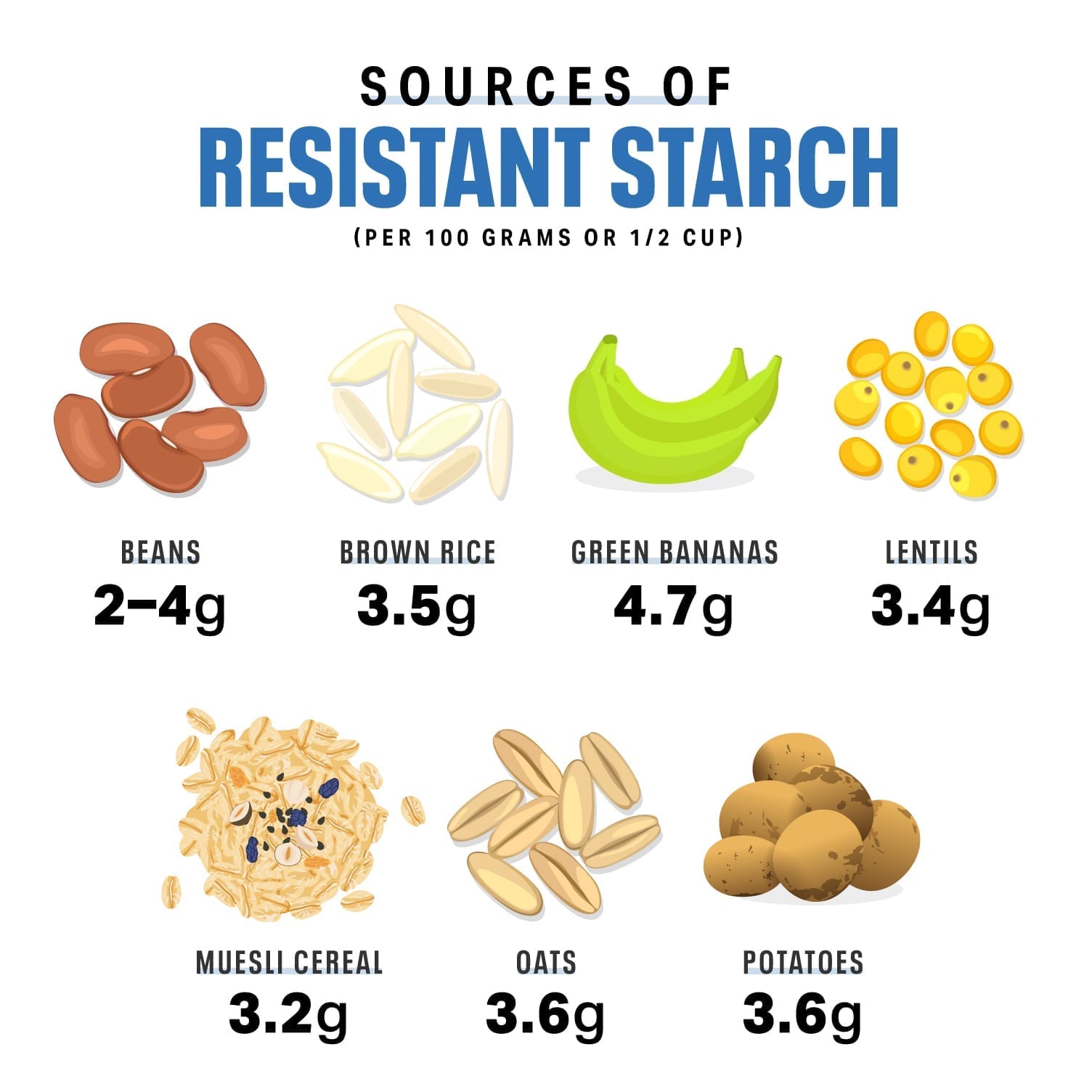
The Important Role Resistant Starch Plays in Weight Loss
If you’re looking to lose weight, consuming more oats, beans, lentils, peas, plantains, seeds and unripe bananas could help. These foods are all high in resistant starch, a type of prebiotic fiber shown to slow digestion, reduce abdominal fat, and aid weight loss.
“Resistant starch is a type of starch that does not get digested in the digestive tract; it is ‘resistant’ to digestion,” explains Rahaf Al Bochi, RD, spokesperson for the Academy of Nutrition and Dietetics. “These resistant starches ferment in the large intestine and feed the good bacteria in the colon.”

Here are four ways resistant starch helps with weight loss:
IMPROVES INSULIN SENSITIVITY
“The greater your insulin sensitivity, the more efficiently your body uses insulin and lowers blood sugar after meals,” explains Bochi. Weight loss boosts insulin sensitivity and research shows resistant starch can help, too. Overweight or obese adults who consumed 10–15 grams of resistant starch per day had lower fasting glucose, fasting insulin, and improved insulin sensitivity, according to a 2019 study published in the journal Nature.
BOOSTS SATIETY
“Foods high in resistant starch linger longer in your system,” says Joan Salge Blake, RD, clinical professor of nutrition at Boston University. “Resistant starch can help fill you up, so, in turn, you consume less at a meal,” she explains. Research found eating 30 grams of resistant starch per day (roughly 1 cup each of oats, beans, brown rice and potatoes and one green banana) for six weeks helped decrease hunger hormones in overweight adults, reduced mindless snacking, and aided weight loss.
HELPS BURN FAT
Replacing a portion of the carbs in your diet with resistant starch increased fat burning after a meal up to 30%, according to University of Colorado researchers. In animal studies, consuming resistant starch is associated with reduced abdominal fat and increased fat oxidation.
READ MORE > WHAT ARE PREBIOTICS — AND THE BEST WAYS TO EAT THEM
BOLSTERS HEALTHY GUT BACTERIA
“[Resistant starch] functions as a prebiotic fiber that feeds the good gut bacteria in the colon and improves digestive health and metabolism,” explains Bochi. One study found eating 100 grams of resistant starch per day had a significant positive impact on the gut microbiome; additional research showed consuming 40 grams of resistant starch per day for four weeks decreased levels of bad bacteria, improved glucose metabolism and helped reduce abdominal fat.
THE BOTTOM LINE
Despite the benefits of a diet high in resistant starch, most Americans consume fewer than 10 grams of resistant starch each day. You can increase your intake by adding more foods like oats, cold potatoes or rice, cassava root, unripe bananas, green banana flour and konjac noodles in your diet. Just remember to increase your resistant starch intake slowly, as “eating too much at once may cause gastrointestinal side effects such as gas or bloating,” says Boci. “Drinking lots of water can also help reduce any GI side effects.”
Originally published July 2020





